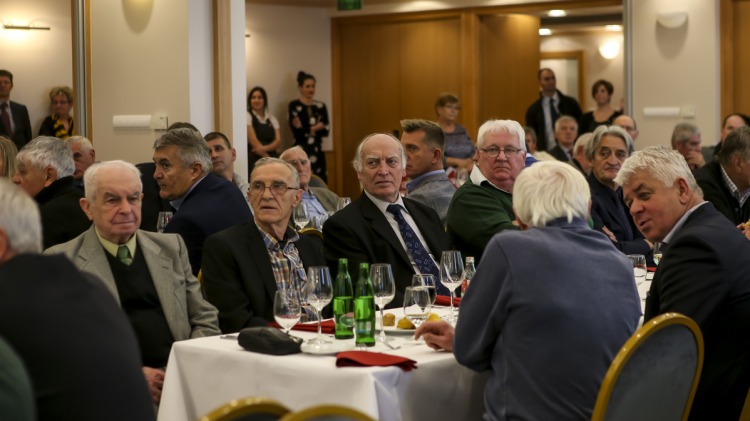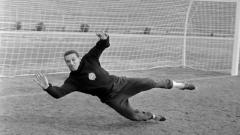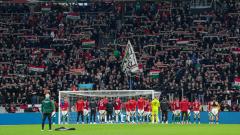Hungarian Football Day sees legends of the past visit the new Puskás Stadium

It is now a 25-year tradition that the Hungarian Football Day is held on the anniversary of the 6-3 victory over England at Wembley Stadium and that former national team players and coaches meet to remember the current year’s events.
25th November 1953. England 3-6 Hungary. The match in which the Hungarian Aranycsapat (Golden Team) became the first continental team to beat England at home in 90 years. “The Match of the Century”. The Hungarian Football Day has been celebrated on 25th November since 1993 and is an annual occasion for former national team players and coaches to close the year together.
Given that the 25th of November fell on a Sunday this year, the Hungarian Football Federation held the event on Friday the 23rd. President Sándor Csányi and Vice-president Sándor Berzi, General Secretary Márton Vági, Presidency members Anthony Radev and Tibor Nyilasi, Steering Committee member Mihály Takács represented the Federation, with Olympic champion Antal Dunai also in attendance, as were celebrity guests including violinist Zoltán Mága and canoeing World champion Tamás Wichmann.
The programme began with guests touring the new Puskás Ferenc Stadion which is currently under construction and which will be one of twelve host stadiums at UEFA EURO 2020. TV commentator István Hajdú then welcomed them to the Danubius Hotel Aréna, where respects were paid to those former greats who have passed away since the last Hungarian Football Day, among them the Aranycsapat’s 12th man, legendary radio reporter and former MLSZ President György Szepesi.
In his speech, MLSZ President Sándor Csányi talked about there being: “unfortunately, less and less of the former greats with us each year; those who were idols to countless generations. I wish you good health and ask you that you continue to be active in your support of Hungarian football”. Csányi also noted that significant progress has been made terms of infrastructure development, not just in the professional game but also at amateur and grassroots level. More than a thousand new pitches have been laid and more than 700 renovated so far and work continues.
Regarding Hungary’s national teams, Csányi then talked about both the men’s and women’s U17 and U19 teams successfully qualifying for their respective European Championship elite rounds once again. The U21 team was unsuccessful in its quest to qualify for the Olympics, and whilst he mentioned his disappointment that the national team hadn’t succeeded in winning its UEFA Nations League group, he did feel that the year had brought positives. “The last two matches were promising. I feel, and hope that we have found a head coach for the long-term in Marco Rossi” he added, also noting the presence of many former women’s national team players, who are looking forward to Friday’s European Championship qualification draw on Friday as well as next year’s Women’s Champions League final which will be held in Budapest.
Following the speeches, Master of Ceremony Ivett Bardon entertained the guests, who also visited the Puskás Institute’s 6:3 exhibition and socialised together in the afternoon.
A hírkategória további hírei
2026-02-12 23:09:33
UEFA Nations League: Hungary drawn with Ukraine, Georgia and Northern Ireland
2026-02-04 18:29:57
Gyula Grosics was born 100 years today
2026-01-31 00:12:06
Europa League: Fradi to face Ludogorets of Bulgaria in knockout stages
2026-01-23 16:46:56











